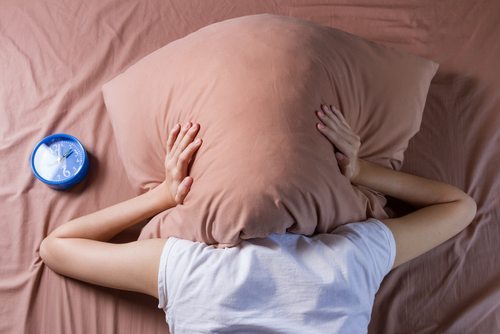Marijuana is one of the most commonly used drugs in the country but contrary to popular belief, it can also be addictive. While marijuana does not cause physical addiction, heavy users can develop a psychological compulsion to continue using which can disrupt their lives.
As with any drug, stopping chronic marijuana use can result in unpleasant withdrawal symptoms. When the body must suddenly learn to function without the presence of the THC that produces the high which it has grown used to; the body responds by sending out these withdrawal signals.
Getting rid of any addictive habit requires effort, and it is no different for addicts trying to quit smoking marijuana. However, by educating ourselves about the withdrawal symptoms and the effective remedies available it can help in preparing mentally for getting through the detoxification and withdrawal process.
The most common symptoms of marijuana withdrawal include:
- A sense of anxiety or unease
- Irritable or changeable moods
- A decrease in appetite
- Cravings
- Headaches
- Nausea
- Sleeplessness
- Depression
- Disinterest in surroundings or boredom
- Gastrointestinal problems
Everyone’s withdrawal experience will be different, and the more Marijuana has been abused the more severe the symptoms could be. In general, however, the withdrawal process for marijuana is not as intense as other drugs, with symptoms generally lasting no more than a few days after quitting.
In some cases, symptoms can last longer or be accompanied by more severe psychological issues such as depression and anxiety. These can be best managed and understood under the guidance of a rehab expert.
Treating Withdrawal Symptoms
Slowly reducing the amount of marijuana you consume—a process called tapering—can help make withdrawal symptoms less severe as the body adjusts to the changes, yet most people will still benefit from outpatient or inpatient treatment programs to help manage their dependence.
An effective method for managing marijuana withdrawal and preventing relapse is to identify common triggers and ask yourself questions such as:
- Is there a particular time of day when you smoke marijuana?
- Do you use marijuana as part of your daily routine?
If so, modify your behavior to help avoid these common triggers. A qualified professional can help you learn the tools to avoid those triggers and minimize the chance of relapse.
Additional steps that can help marijuana withdrawal include practicing yoga and relaxation techniques to combat anxiety, eliminating caffeine from your diet, and using meditation to overcome irritability.
There is no medicine currently available for marijuana withdrawal, although clinical trials indicate that busiprone may show promise in helping patients overcome marijuana dependence.
When you’re ready to control your chronic marijuana usage, get in touch with our trained rehabilitation team at The Villa for guidance and support.

